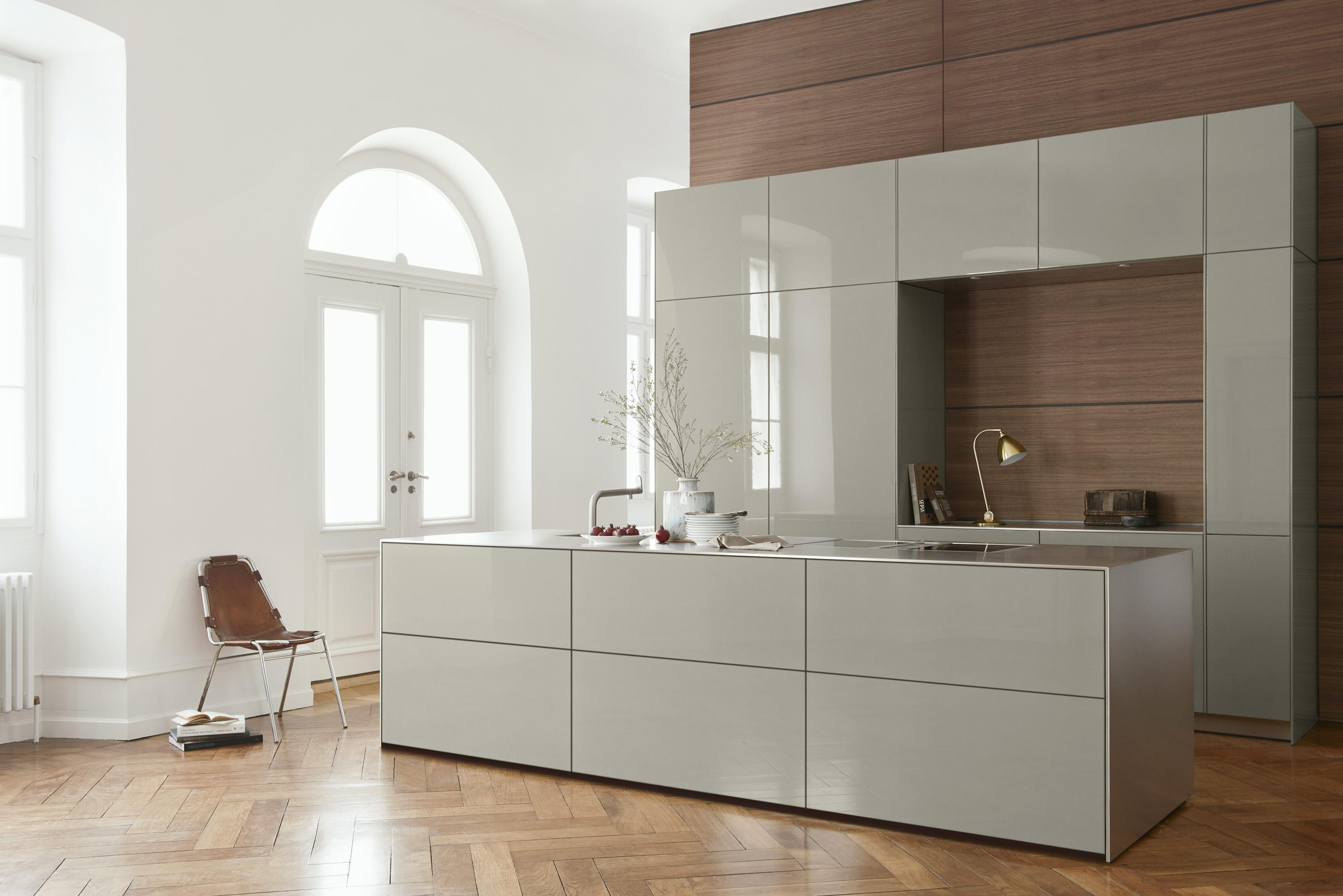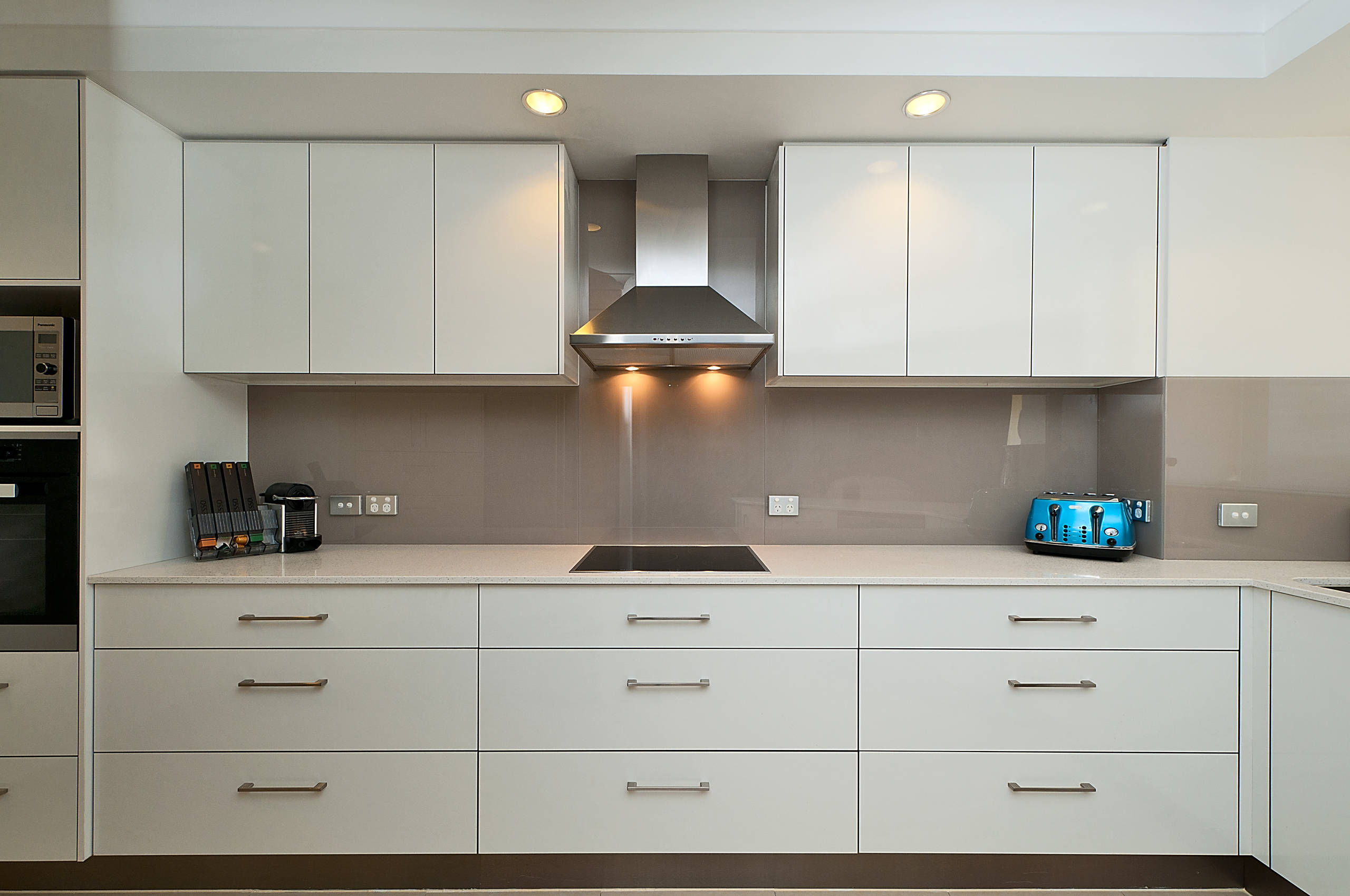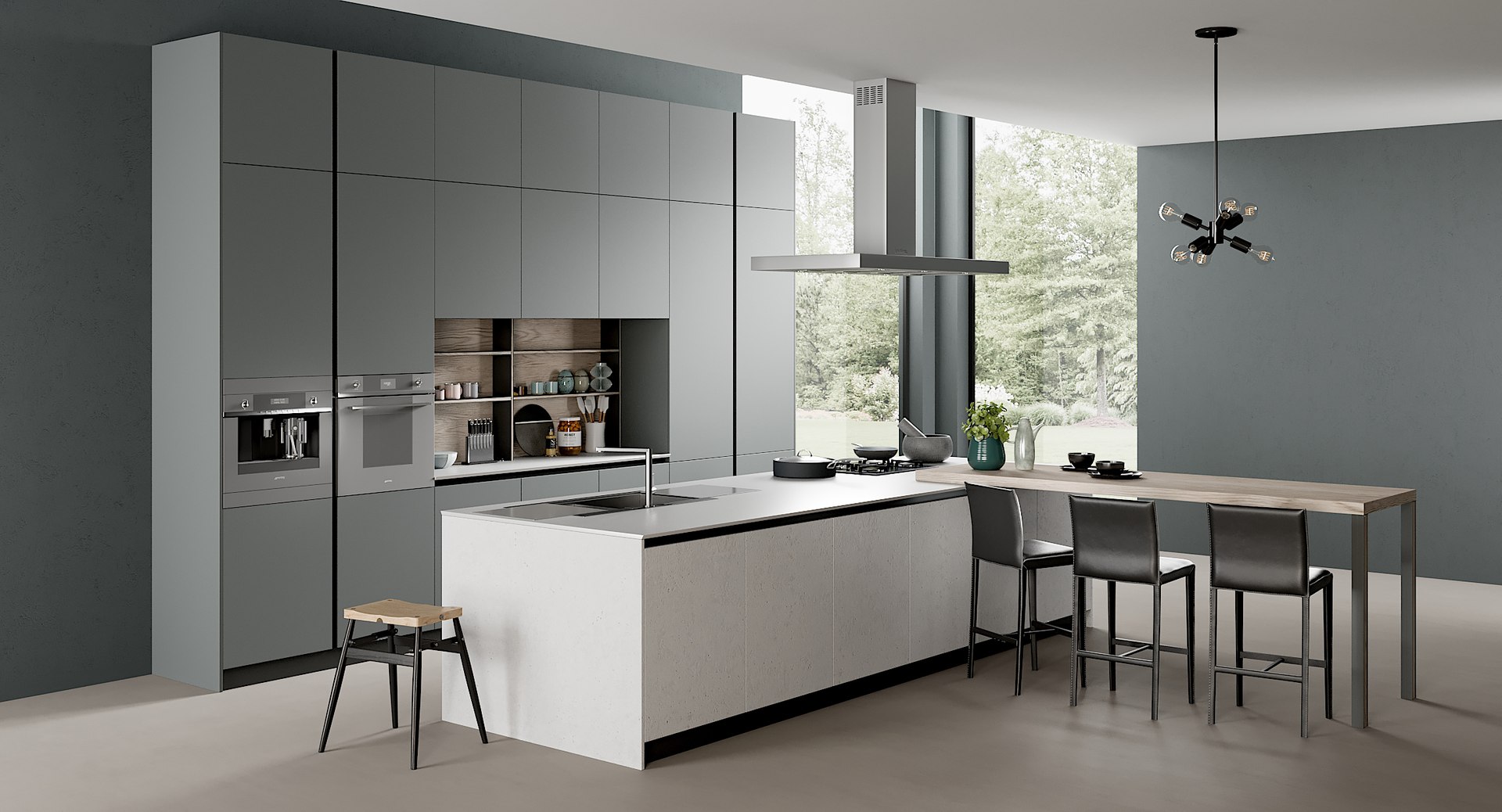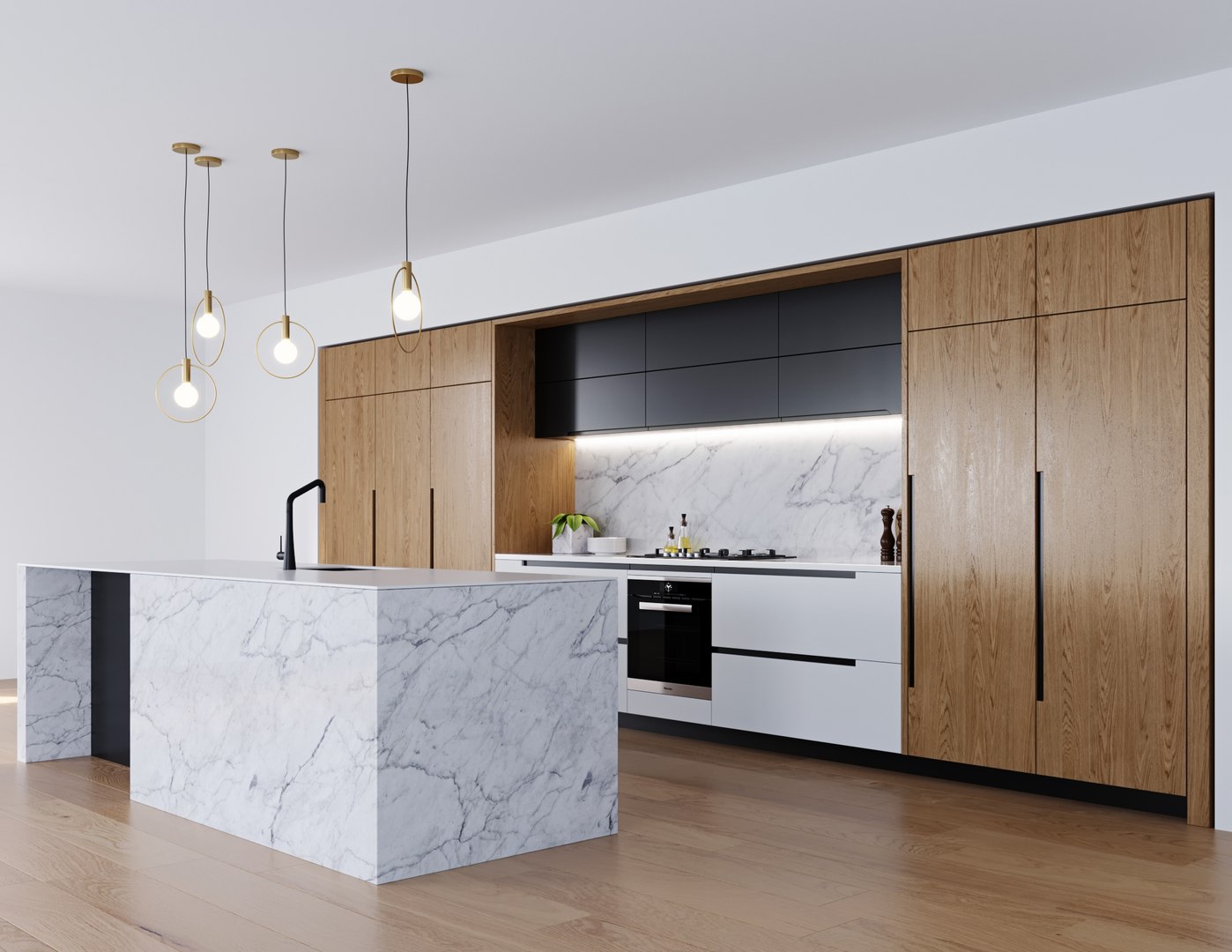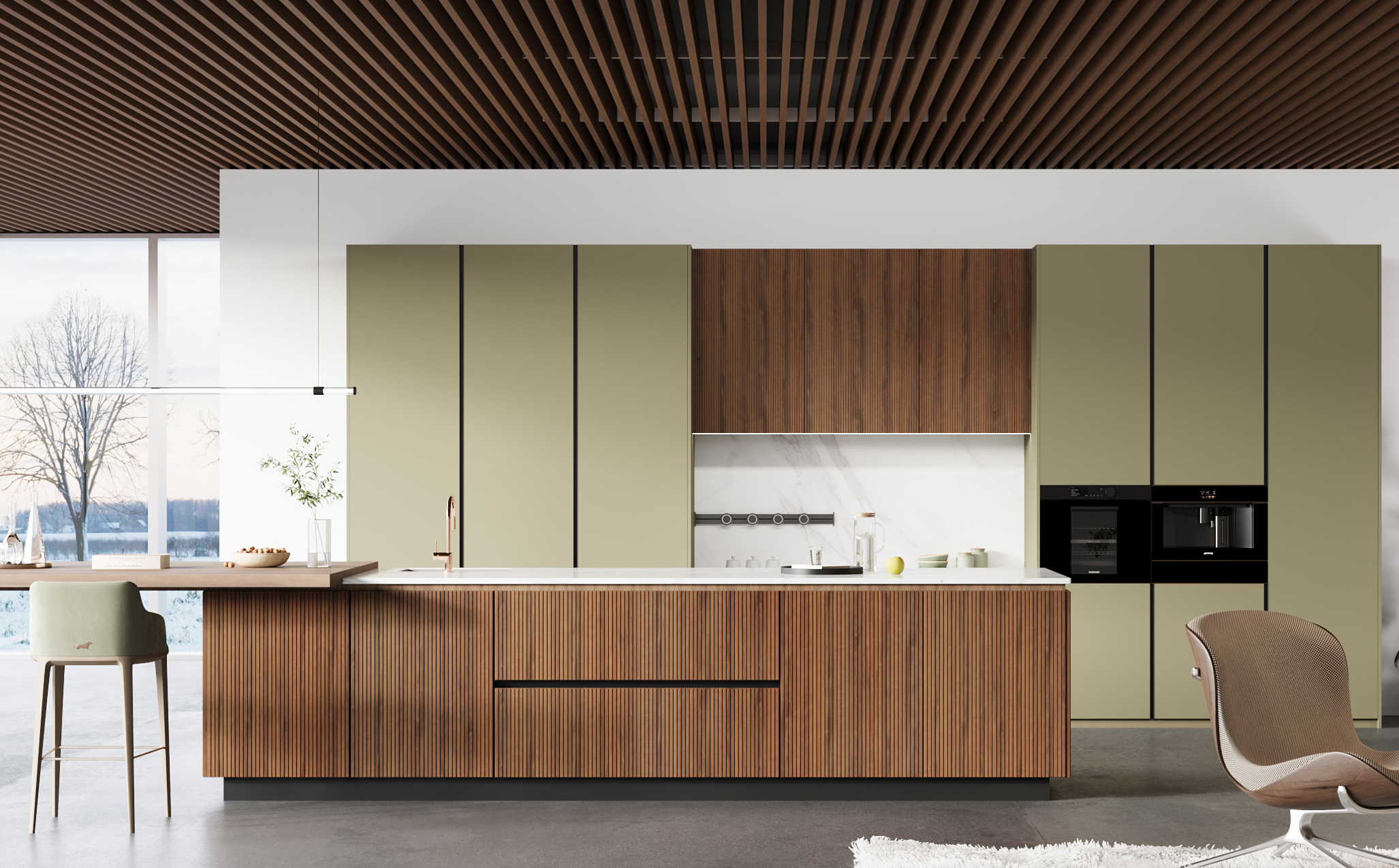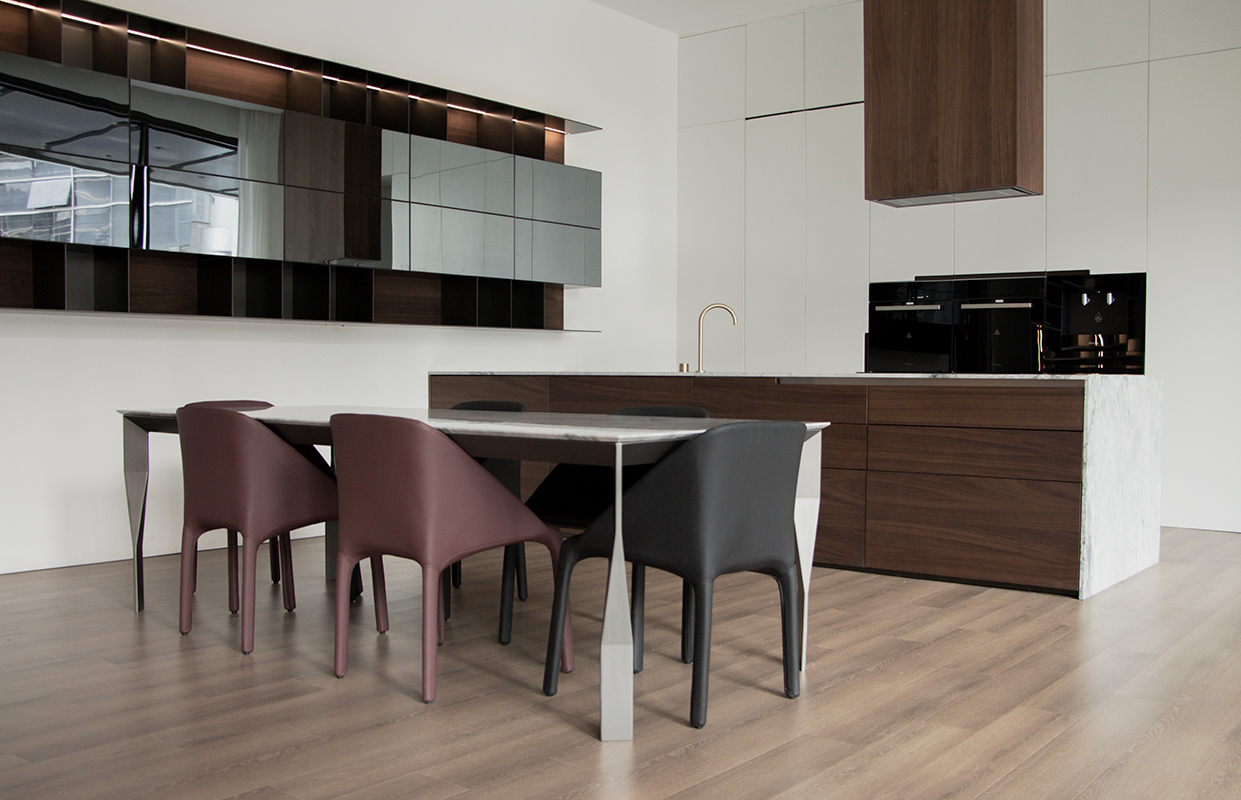As global demand for high-quality kitchen cabinetry continues to rise—both in residential and commercial markets, choosing the right kitchen cabinet supplier has become more critical than ever. Whether you're a real estate developer working on multi-unit projects or a general contractor overseeing residential or commercial renovations, the capabilities of your kitchen cabinet supplier will directly influence project success. From material quality to customization flexibility and delivery timelines, every aspect matters.
So how can you make an informed choice when it comes to selecting a supplier that matches your project needs? In this article, we’ll walk you through essential considerations, types of suppliers to compare, and questions to ask before placing your first order.
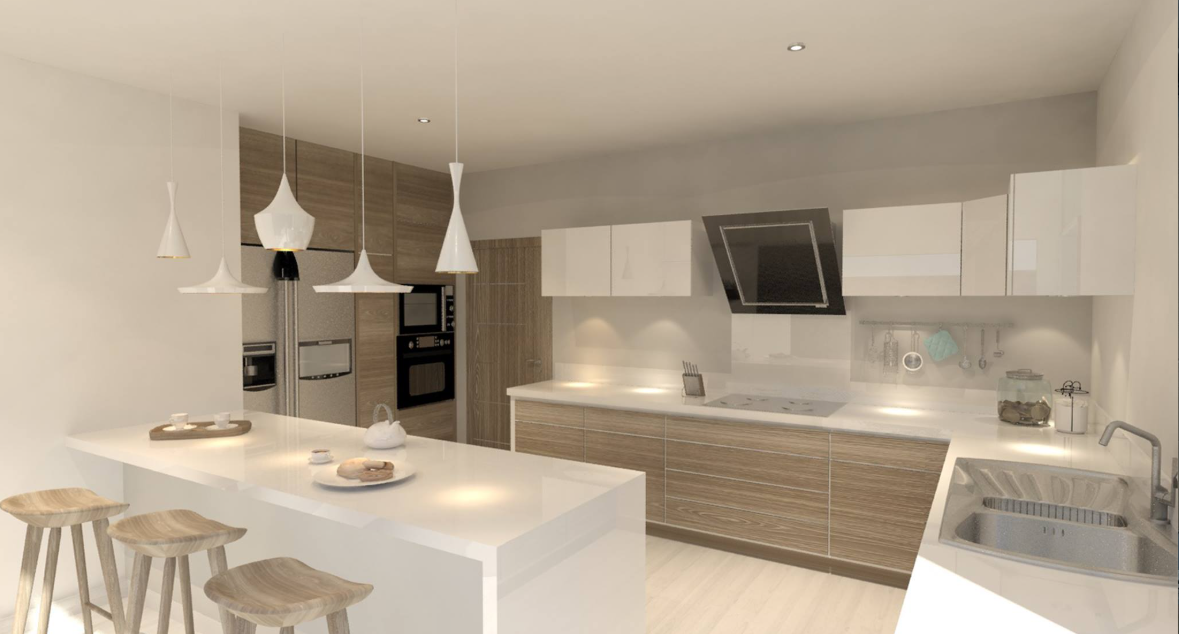
What You Need to Know Before Buying Kitchen Cabinets
Before you even start shortlisting suppliers, it’s important to understand the basics of what you’re buying. Here are some key factors to consider:
Cabinet Material Options: Popular choices include solid wood, plywood, MDF, particle board, and aluminum frames. Each comes with a different cost, durability, and aesthetic profile.
Cabinet Styles: Modern flat-panel, classic shaker, European handleless, and traditional raised-panel designs require different levels of craftsmanship and hardware.
Usage Scenarios: Are you outfitting a private home, a hotel, or a real estate development? This determines your material, design, and bulk ordering needs.
Customization Needs: Will the cabinets need to be made-to-order, or are you sourcing off-the-shelf units? If you require flexibility, look for the best kitchen cabinet supplier for custom projects.
Budget and Quantity: Clarify your budget range and determine if you need to buy kitchen cabinets in bulk. Many manufacturers have minimum order quantities (MOQs) for wholesale orders.
Design & Space Preparation: It’s helpful to have your kitchen dimensions and a basic layout ready before requesting a quote or sample.
Understanding these variables will make it easier to communicate with potential suppliers and avoid costly mistakes later.
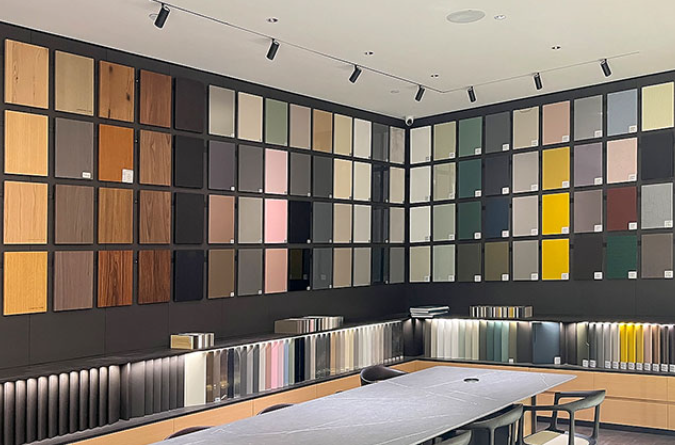
What to Look for in a Reliable Kitchen Cabinet Supplier
Once you're ready to evaluate potential suppliers, here are the main criteria to focus on:
1. Product Quality and Material Standards
A dependable supplier should use durable and certified materials, especially if you're planning long-term installations. Check if the supplier offers eco-friendly kitchen cabinet options with certifications like CARB-P2 or E1 formaldehyde standards. A reliable kitchen cabinet supplier will also be transparent about their construction techniques, such as soft-close drawers, dovetail joints, and moisture-resistant finishes.
2. Customization and Design Support
If your project involves non-standard dimensions, branding, or layout adjustments, you'll want a kitchen cabinet supplier that provides full customization. Look for services such as 3D modeling, design consulting, and color/material sample matching. This is especially important if you're working with interior designers or multiple units.
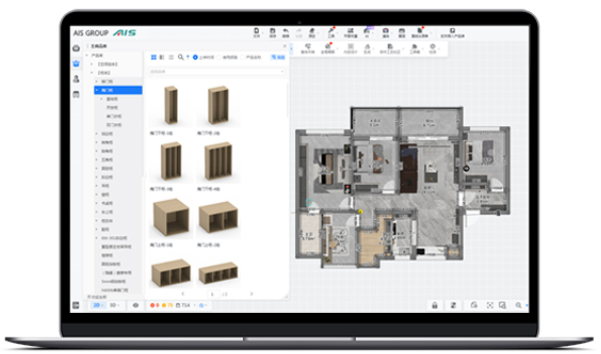
3. Manufacturing Capability and Bulk Ordering
Your supplier should be able to meet both your volume and lead time requirements. Whether you're supplying a single villa or a residential complex, choose a partner who offers fast delivery kitchen cabinet production capacity. For global sourcing, look for options to buy kitchen cabinets in bulk with clear MOQ and shipping details.
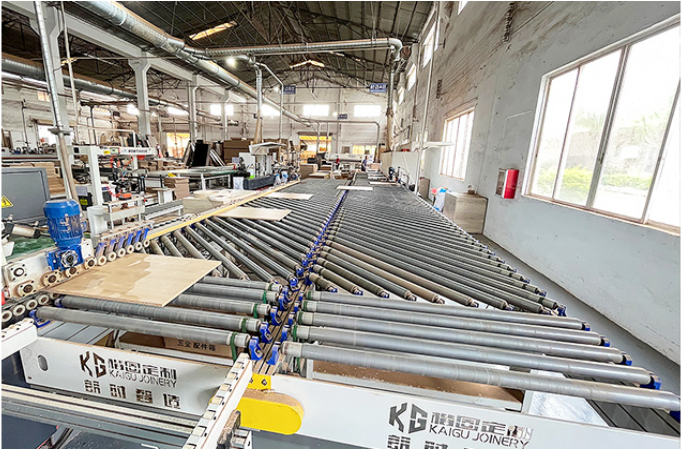
4.Export Experience and Global Delivery
For international buyers, export experience matters. The best suppliers understand overseas packaging standards, documentation requirements, and how to minimize damage in transit. A fast delivery kitchen cabinet supplier will also provide realistic production timelines and shipping coordination.
Supplier Type Comparison: Which One Fits Your Needs?
To make your selection process easier, here’s a quick overview comparing common types of kitchen cabinet suppliers:
|
Supplier Type |
Features |
Pros |
Limitations |
Best For |
|
Local Retailers |
Stock cabinets withlimited styles |
lmmediate purchaseon-site viewing |
Higher price, limited customization |
Small-scaleresidential buyers |
|
Brand Dealers |
Sell branded andimported cabinetry |
Recognized quality,stylish designs |
Long lead times,expensive |
Luxury remodels, brand-consciousbuyers |
|
Online B2B Platforms |
Mix of factories andtraders |
Wide range, accessible pricing |
Inconsistent qualitylimited support |
Small batchimporters or resellers |
|
Factory-Based ExportSuppliers |
In-house productionwith OEM/ODM capability |
High customization,cost-effective, bulk-ready |
Requires clear communication, MOQ applies |
Contractors, developers, overseas buyers |
If you’re managing a large-scale or custom project, working directly with a kitchen cabinet supplier that owns its factory, like AIS, can provide better value, better quality control, and smoother commuplier
Questions to Ask Before Finalizing Your Supplier
- Before you sign any contracts or place your order, make sure you clarify the following with your shortlisted suppliers:
- Can they provide design services or support your layout files?
- What is the typical lead time for custom orders?
- Do they offer samples of materials and finishes?
- What’s the minimum order quantity (MOQ)?
- Do they have experience shipping to your destination country?
- What after-sales or warranty services are available?
These questions will help you identify a reliable kitchen cabinet supplier who can deliver what you need, when you need it.
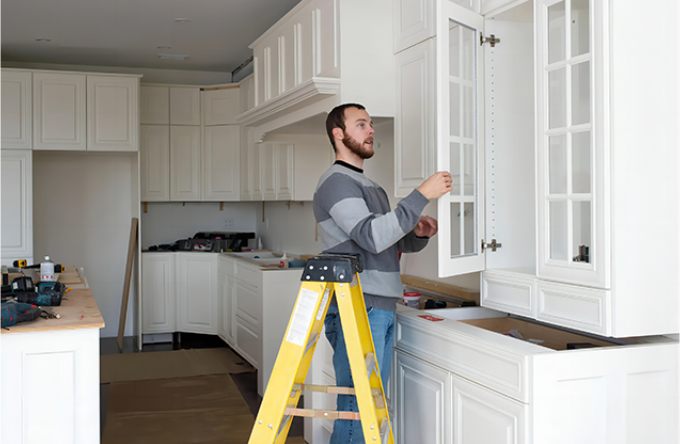
FAQ
Q1: What is the best material for kitchen cabinets in commercial projects?
A1: Plywood and solid wood are often preferred for commercial use due to their strength and durability. For high-moisture environments, aluminum frames or moisture-resistant MDF can be a smart choice.
Q2: How can I verify the quality of a kitchen cabinet supplier’s products?
A2: Look for material certifications (e.g., CARB-P2, E1), inspect sample units if available, and ask about construction features like soft-close hardware, joinery techniques, and finishes.
Q3: What is a reasonable lead time for custom kitchen cabinet orders?
A3: Typical lead times range from 3 to 6 weeks, depending on the supplier’s production capacity and the level of customization required. Confirm timelines before placing large or urgent orders.
Q4: Can I buy kitchen cabinets in bulk from a factory without visiting in person?
A4: Yes. Many factory-based kitchen cabinet suppliers offer remote ordering, digital design consultations, and international shipping. Choose experienced exporters who can handle documentation and packaging for overseas delivery.
Q5: What’s the difference between a factory supplier and a trading company?
A5: Factory suppliers manufacture products directly and often offer better pricing, customization, and quality control. Trading companies act as intermediaries and may have higher prices or less control over production quality.
Q6: What customization options do top kitchen cabinet suppliers offer?
A6: Advanced suppliers provide full OEM/ODM services, including 3D design, layout matching, hardware selection, branding, and a wide range of color and finish options.
Conclusion
Finding the right kitchen cabinet supplier isn't just about pricing, it's about aligning with a partner who understands your project, timeline, and quality expectations. Whether you're sourcing for a large-scale housing project or a series of bespoke kitchen remodels, a factory-direct supplier that offers customization, speed, and quality assurance will be your best asset.
If your next project demands tailored cabinetry with dependable service and global delivery, consider reaching out to a fast delivery kitchen cabinet supplier with export-ready solutions.


